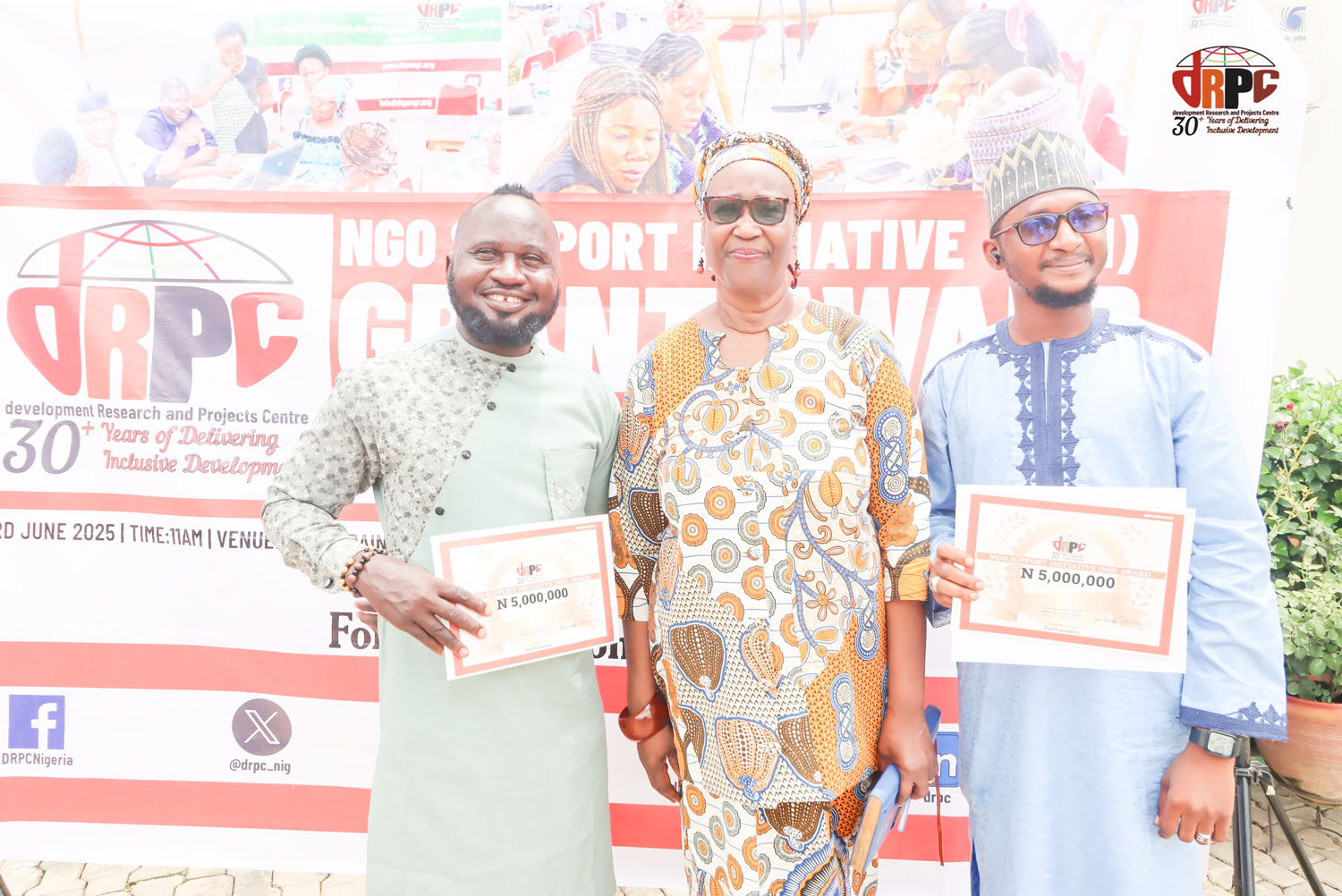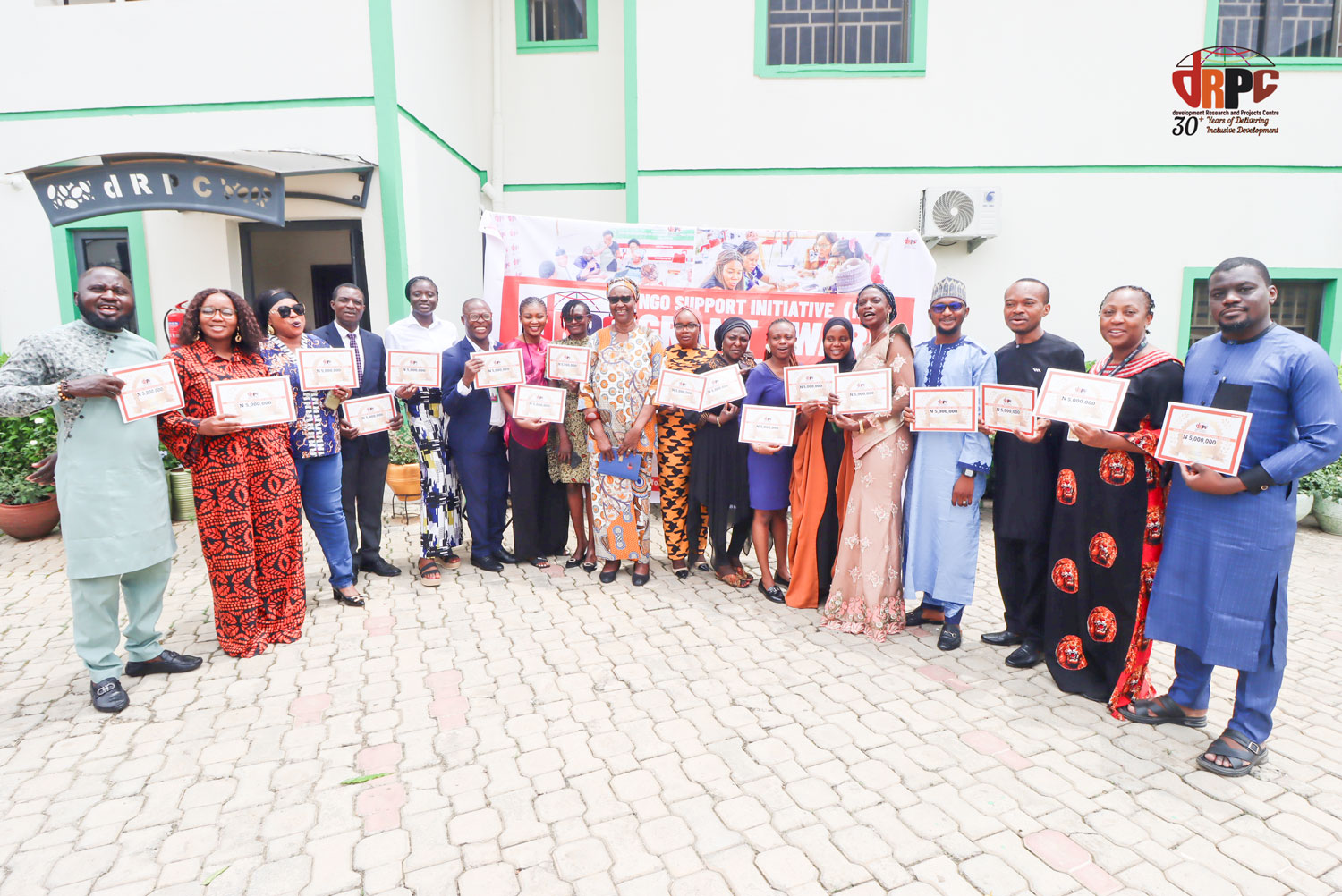Nigeria’s nonprofit sector finds itself at a crossroads. Over the past years, many local NGOs have depended heavily on foreign grants, especially from agencies such as USAID. But as global funding priorities shift and major donors retrench, organizations that serve some of Nigeria’s most vulnerable populations—such as women, children, and marginalized communities—risk being left without the vital resources needed to continue their work. In response, the development Research and Projects Centre (dRPC) has launched an innovative response: the NGO Support Initiative (NSI), designed to empower local actors and ensure long-term sector resilience through dedicated capacity building and mentorship.
This bold initiative is not just a stopgap; it is a strategic investment in Nigerian civil society’s future. Dr. Judith-Ann Walker, executive director of dRPC, explained at the programme’s official launch that the NSI project represents “a commitment to strengthening local NGOs not only to survive, but to thrive, even as traditional sources of funding become less reliable.”
According to dRPC, the NSI has disbursed over N150 million in direct support to 17 Nigerian NGOs working across diverse local communities. These organizations reportedly shape the lives of thousands of women, children, and other underserved groups, with Dr. Walker noting, “When development partners withdraw or suspend funding, it’s local organisations and the communities they serve who face the sharpest consequences. This programme equips our partners to attract new donors and achieve financial independence, going beyond short-term relief.”
As international donors reassess their strategies, dRPC’s intervention aims to build a buffer against volatility, especially for organisations deeply rooted in delivering social inclusion, advancing women’s rights, and promoting good governance throughout Nigeria and the wider West African region.
Mentorship-Driven Capacity Building
The NSI focuses on 17 subgrantee NGOs—all of whom previously participated in USAID-supported programmes. The initiative pairs each organisation with a seasoned development practitioner from dRPC’s network, offering a structured six-month mentorship experience. This model addresses urgent needs in areas like proposal development, institutional strengthening, and donor engagement, with skills training spanning financial management, communications, and results-based monitoring and evaluation (M&E).
Mentors in the programme work hand in hand with participating NGOs to help them adapt to a competitive funding landscape. This means not only refining their technical skills, but also strengthening their internal controls and strategy to appeal to a broad range of funding sources, both local and international.

In addition to hands-on mentoring, the NSI offers donor mapping sessions, compliance readiness tests, and practical proposal writing clinics. These initiatives are tailored to ensure that every participating NGO can meet the demanding standards set by large development agencies and international funders. The idea, according to dRPC leaders, is to prepare local organizations for the realities of today’s donor environment, where accountability, transparency, and effectiveness are paramount.
Driving Local Ownership and Sustainability
This project signals an important shift away from aid dependency towards homegrown sustainability across Nigeria’s development sector. According to sector observers, developing local capacity is increasingly seen as the most sustainable path forward—not only in Nigeria, but across West Africa.
As dRPC continues to support the growth of locally led and internationally recognized civil society groups, the ultimate goal is to see indigenous organisations fully plan, manage, and assess their own projects, free from overreliance on external partners.
Stanley Ukpai, director of projects at dRPC, observed, “Donors prefer working with local partners they can trust: open, accountable, and technically sound. Our aim is to ensure that no energetic Nigerian NGO is left out of vital funding opportunities, simply because they lack the expertise to communicate or comply with international partners.”
In addition to top-down mentorship, the NSI encourages peer-to-peer learning. Subgrantees participate in community-of-practice forums, where NGOs from different states and backgrounds collaborate, share insights, and jointly develop solutions to sector-wide challenges. This approach is already creating lasting relationships and collaborative networks, according to participants.
An Early Wave of Positive Feedback
Early review of the program, as shared by participants, reveals a renewal of resilience and optimism among local organisations.
Grace Ibrahim, executive director of a women-led NGO in Borno State, described the mentorship as transformative. “We thought it was finished when our USAID funding stopped,” she explained. “The dRPC’s coaching helped us rebuild our processes and regain confidence. For the first time, we are preparing our own grant applications—and we are in talks with two potential funders.”

This sentiment is echoed by several other grassroots leaders, who credit the NSI not just with maintaining their operations, but with raising their ambitions to new heights. As local NGOs strengthen their internal systems and diversify their resource base, the future appears a bit more secure—even in uncertain global funding environments.
Building a Stronger Future for Nigerian Civil Society
At the heart of this shift is localisation—a global movement pushing for greater autonomy among organisations closest to the communities they serve. The dRPC’s NGO Support Initiative aligns squarely with this trend, meeting calls from the United Nations and other multilateral agencies to invest in local actors rather than perpetuate dependency cycles.
To further entrench sustainability and boost Nigeria’s stature as a regional leader in the sector, dRPC is actively inviting international donors, grant-making foundations, and development agencies to explore partnership opportunities. The centre highlights that the NSI is not only delivering continuous support to communities in need, but dramatically enhancing skills in crucial areas such as fiduciary management, donor relations, and compliance requirements for NGOs.
Dr. Walker summarized this broad vision: “This project is a bridge—not only between past and future financing, but from dependency to self-reliance. Our hope is that these Nigerian NGOs will soon implement their own projects and, in time, even become funders to others.”
Bringing together local expertise, targeted capacity building, and ongoing mentoring, the dRPC NGO Support Initiative offers a blueprint for rebuilding Nigeria’s civil society platform from within. Against a backdrop of fiscal uncertainty, that sort of homegrown strength may be the best defence—and a model for development throughout Africa.
Hassan Aliyu Karofi, dRPC’s Director of Communication and Partnership, remains a point of contact for further information about the initiative.
What role should local organisations play in building a more sustainable development sector across Nigeria and West Africa? Have you experienced the challenges of donor reliance—or found innovative ways to boost your organisation’s resilience? Share your thoughts in the comments below and let’s start a conversation!
Got a powerful story or insight about the NGO sector—or any other local issue? We want to hear from you! To get your story featured or talk about story sales, email us at story@nowahalazone.com.
For general support or questions, contact us at support@nowahalazone.com.
Join the community—comment below, chat with fellow readers, and follow us for more updates on Facebook, X (Twitter), and Instagram!










